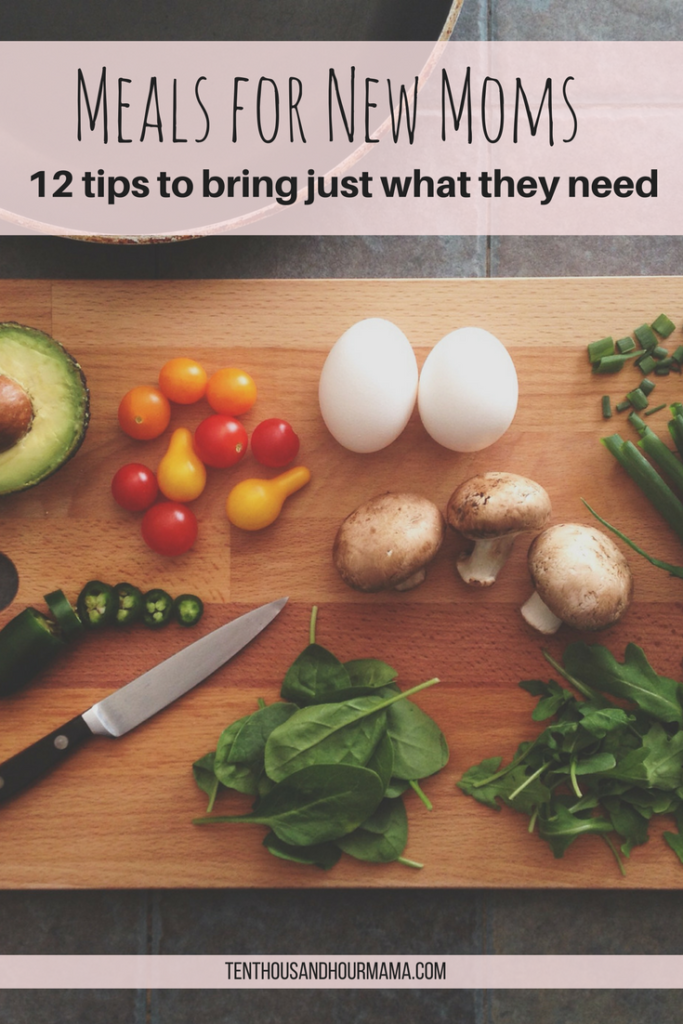
When each of my girls was born, the steady delivery of meals was an enormous help. I couldn’t figure out how to breastfeed, much less feed myself, so the food friends brought nourished me in a way I deeply needed. In addition, their visits proved to be a much-appreciated and reliable contact with the regular adult world whose primary concern was not how many wet diapers the baby has had today. So if you’re considering making meals for new moms, I say to you: DO IT.
Since my big girls are no longer babies, I’ve had the opportunity to pay everyone’s kindness forward. I’ve brought quite a few meals for new moms and their families, and in the process I’ve learned a lot about what to do—and what not to do—when delivering meals to new moms.
So if you’ve signed up for a meal train, YOU ARE AWESOME. Know that by making a meal (or bringing takeout—that’s totally not cheating!), you are showing this new mama that she is loved, supported, cared for—and that her village will help lift her up as she undertakes the most monumental change of her life.
She is a new mom, and you are helping her become the best mother she can be.
(And that’s a big deal.)
If you’re not quite sure what to bring or what to do, though, you’ve come to the right place. When it comes to making meals for new moms, I share these 12 tips to help you make life easier for the family more focused on umbilical cord scabs than dinnertime. Read more